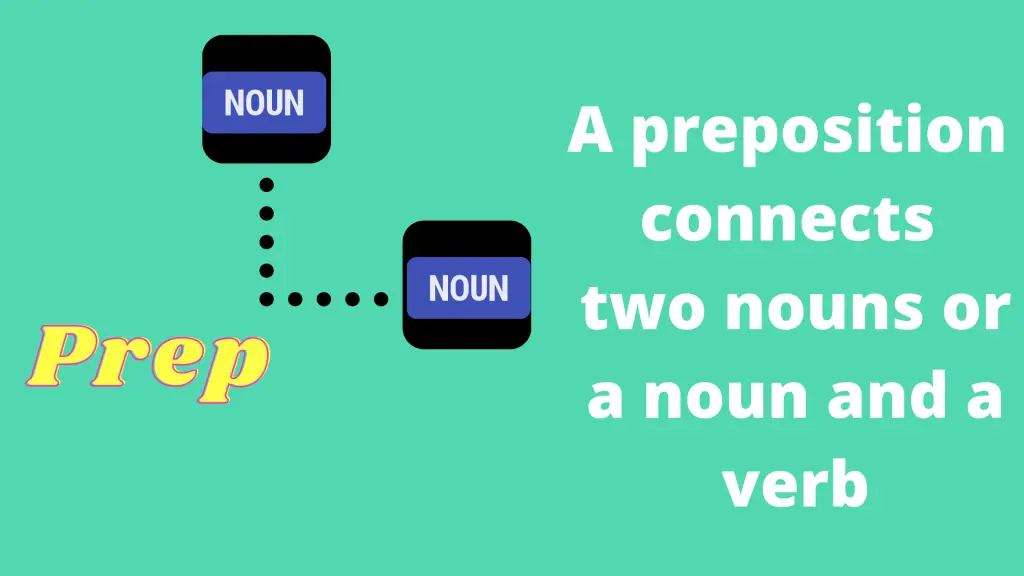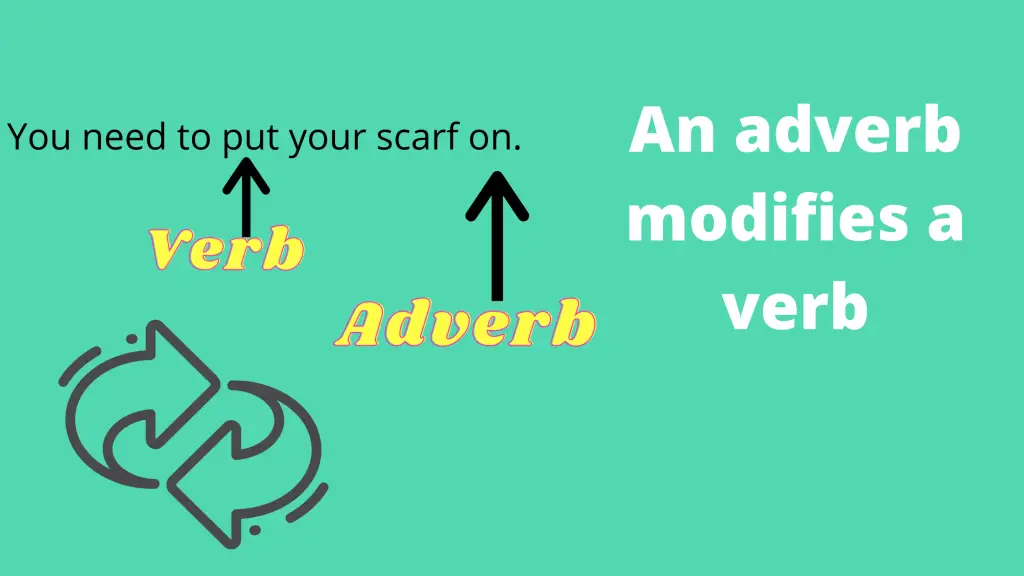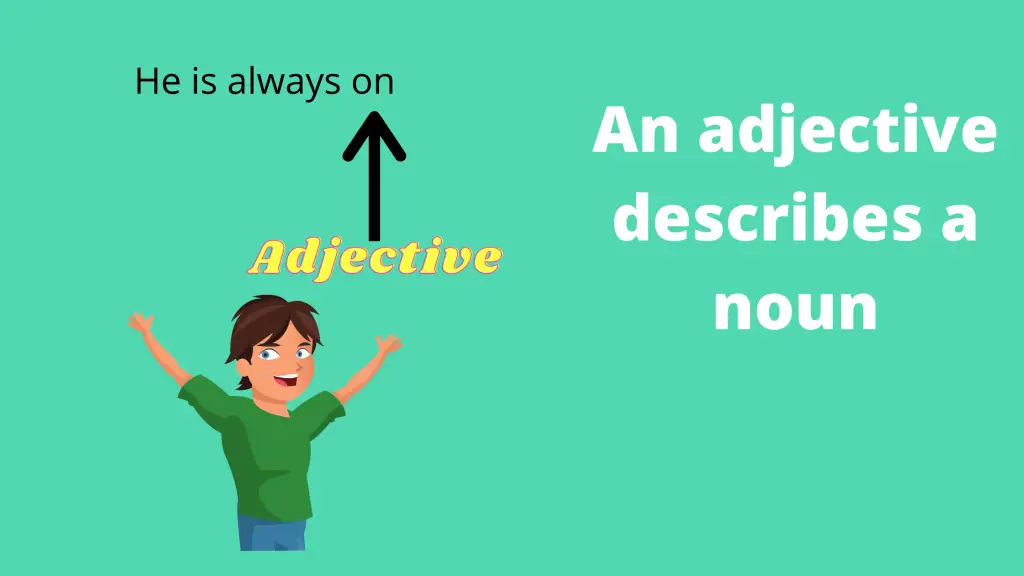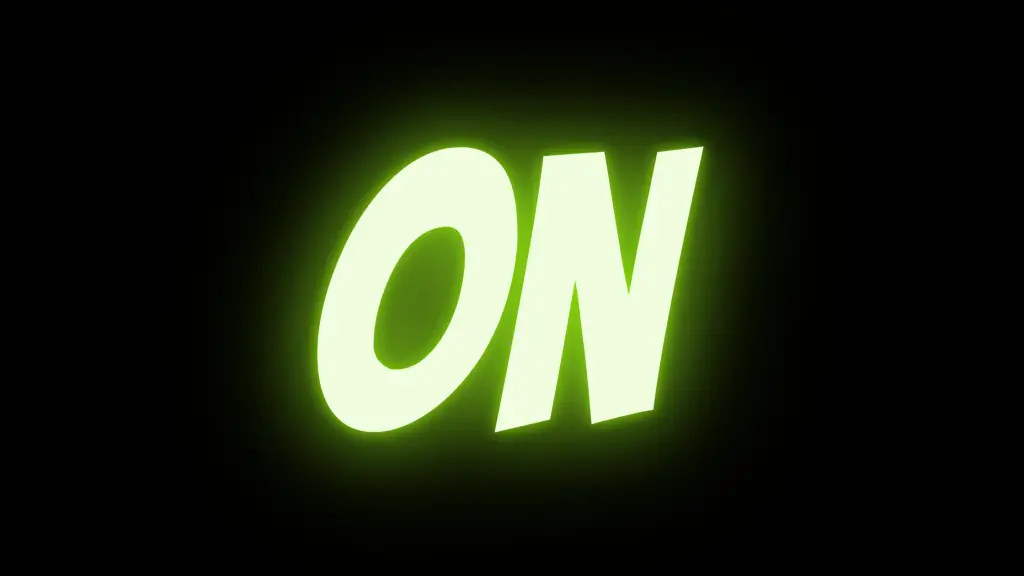On can be a preposition, adverb, or adjective depending on the context. On is not a conjunction or a verb. On is most commonly used as a preposition of time or place.
On can be used in a lot of different situations and contexts but it is mostly used as a preposition.
On as a preposition
A preposition in English is a part of speech that shows the relationship between a noun and another part of the sentence.

We often use on for surfaces when talking about physical spaces and days when talking about time.
On can be used as a preposition in the following situations
Physically in contact with, supported by something, or cover something
We use on for situations where one object touches another object and the first object supports the second object. This can be in any direction( from the floor, from the wall, from the ceiling). We also use it when we talk about technology because a lot of technology uses comes in the form of a surface of a screen.
I sat down on the chair.
I put the cup on the kitchen counter.
I watched the movie on T.V.
I study English on Youtube
I put the painting on the wall.
I put the paint on the canvas.
He has a scar on his leg.
You need to put your coat on.
Put the tinfoil on the pork chops.
Express the medium through which something happens.
I called her on the telephone.
I payed for it on my credit card.
She was drunk on wine.
We also use on when we want to express the current state of a process.
She put me on hold.
That argument is on point.
He is on episode 5 of the T.V series.
There are other informal uses of on that is used as a preposition including the following
The dinner is on me.(paid for by me)
I have no money on me.(I have no money with me now)
ON as an adverb
On can also be used as an adverb. It is less common to use as an adverb. Remember, an adverb is a word used to modify(change the meaning) a verb.

In the example above, on modifies the verb because it adds more meaning to the verb(where to put the scarf)
On is used as an adverb in the following situations:
To cover your body or other surfaces
You need to put your scarf on.
He had nothing on.
Put the lid back on.
Sew the button back on.
When something is starting to operate
You need to turn it on with your voice.
Put on the radio.
You left the light on.
When something is continuing or not stopping.
She goes on and on and on.(she doesn’t stop talking)
You need to keep on trying.
The show must go on.
I will see you later on.
You walk on, I will catch up.
It was difficult from that point on.
When you use transport
I got on the bus at the first stop.
You need to get on the plane!
You need to climb up on the horse yourself.
When you are performing
I am on stage in 30 seconds.
He is always on(behaving in a way that is entertaining)
When something is happening or planned
I have a lot going on in my life at the moment.
When is the World Cup on?
When to use on as an adjective
On can also be used as an adjective. An adjective describes a noun.

In the example above, we describe the man.
Can you make sure that the lid is on?
In this example, on is used to add more information about the noun “lid”(the current status of the lid)
You are on! (Used in the children’s game tag)
That is not on.(unacceptable)
That shot is not on. (not possible, in this example snooker)
You’re on! (I make a bet with you)
Are we still on for dinner this evening? (Is our agreement still true)
In the above examples, on is used to describe the situation and changes the meaning of a noun. This is often implied by native English speakers.
On is used in the following situations
- When it connects a noun to another part of the sentence(preposition)
- When it modifies a verb(adverb)
- When it describes a noun( adjective)
It is not used as a conjunction or as a verb. It can be part of a phrasal verb when we combine a verb and an adverb/preposition together.
It can be difficult to understand when we use on as a preposition or an adverb or an adjective. In old English grammar, it was not possible to end a sentence with a preposition, therefore on is an adverb in the sentence, He put his coat on. The definition of a phrasal verb is disputed often, so the most important thing is to be able to use them correctly.
- 10 Words or Phrases “To Make Her Feel Special” - October 16, 2024
- Synonym Generator - September 11, 2024
- [BrutallyHonest] Langua AI Review – Can you learn a language with AI? - April 23, 2024


